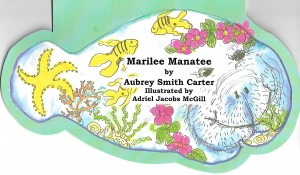I am not one of those given to assume that just because a lot of people like something, then it must be good; after all, Debbie Boone’s warbling of You Light Up My Life was on top of American Top Forty for what seemed like most of the decade in the late 70s, although that damned song sucked with sufficient force to draw in small planets. Everyone that I knew ran gagging and heaving when it came on the radio, but obviously a lot of people somewhere liked it enough to keep it there, week after week after week. A lot of people read The DaVinci Code, deriving amusement and satisfaction thereby, and some take pleasure in Adam Sandler movies or Barbara Cartland romances – no, popularity of something does not guarantee quality, and I often have the feeling that the tastemakers of popular culture are often quite miffed – contemptuous, even – when they pronounce an unfavorable judgment upon an item of mass entertainment which turns out to be wildly, wildly popular anyway.
The popularity of the movie 300 appeared as one of those wildly popular things, for which the intellectual great and good had no explanation. This amused me very much when that movie premiered, because I had some kind of explanation. The story of the Spartans at Thermopylae was one of those stories which has kept a grip on us in the West for nearly three thousand years. Courage, honor, duty, clear-eyed self-sacrifice in a cause, for the lives of those you hold dear, for your city or your country; those are values that hold, that define who we are and what we stand for. I referred to it in Daughter of Texas, when Race Vining recalled the story of Diekenes, with reference to the seige of the Alamo in 1836.
Because you see, it’s all about stories, and our human need for stories; stories about other people, stories that explain, that make things clear for us, that inspire us to great deeds, to set an example or spell out a warning. We need stories nearly as much as we need oxygen. And we will have them, bright and sparkling and new, or worn to paper thinness in the re-telling. We will have stories that have grown, and been embellished by many narrators, with heroes and minor heroes and splendid set-piece scenes, and side-narratives, like one of those sea-creatures that collects ornaments to stick onto its’ shell any which way, or a bower-bird collecting many brilliant scraps and laying them out in intricate patterns. A longing to hear such stories must be as innate in us, as it is to those creatures, for our earliest epic, that of Gilgamesh may be traced back to the beginnings of agriculture, and towns, and the taming of animals, and the making of a written language. It may go back even farther yet, but there is really no way to know for sure what those stories were, although I am sure the anthropologists are giving it the good old college try.
Our values are transmitted in the stories that we go back to, over and over. A long time ago, I read this book, which recommended, rather in the manner of the old Victorians, that children be given improving books to read, that their minds be exercised by good examples. I was initially rather amused – and then I went over the reading list in the back of the book. I realized just then how many of those books the author cited I had read myself, and how many quiet demonstrations of honesty, courage, ethical behavior, loyalty to family, friends and community, of doing the hard right as opposed to the easy wrong had been tidily incorporated into such books as the Little House books, or Caddie Woodlawn, or All of a Kind Family, or Johnny Tremain. We imbibe all these values from stories and lest we think that these sorts of moral lessons are obscure and tangled things, best suited for a long theoretical discussion of the life-boat dilemma in some touchy-feely ethics seminar, the author (or someone that he quoted – it’s been a long time since I re-read the book) brought up the old black and white movie A Night to Remember – the movie account of the sinking of the Titanic. The whole story of the unsinkable ship is laid out, based on research, and with the aid (at the time it was filmed) with many still-living survivors; running full-tilt into an ice-field, hitting an iceberg, loading the relatively few lifeboats while the band plays, and the ships engineers keep the lights and power going, of husbands putting their wives and children into the boats and stepping back to leave more room, knowing that the ship is doomed – of steerage passengers taking matters into their own hands and finding their way up to the boat deck, and deck-hands trying to launch the very last boat as the seawater rises to their knees. Twice a hundred stories, and at the end of it one has a pretty good idea of who has behaved well and honorably – and who has not.
Stories. We need them, and we’ll keep coming back to them. And to the best ones, we will come back again and again.


